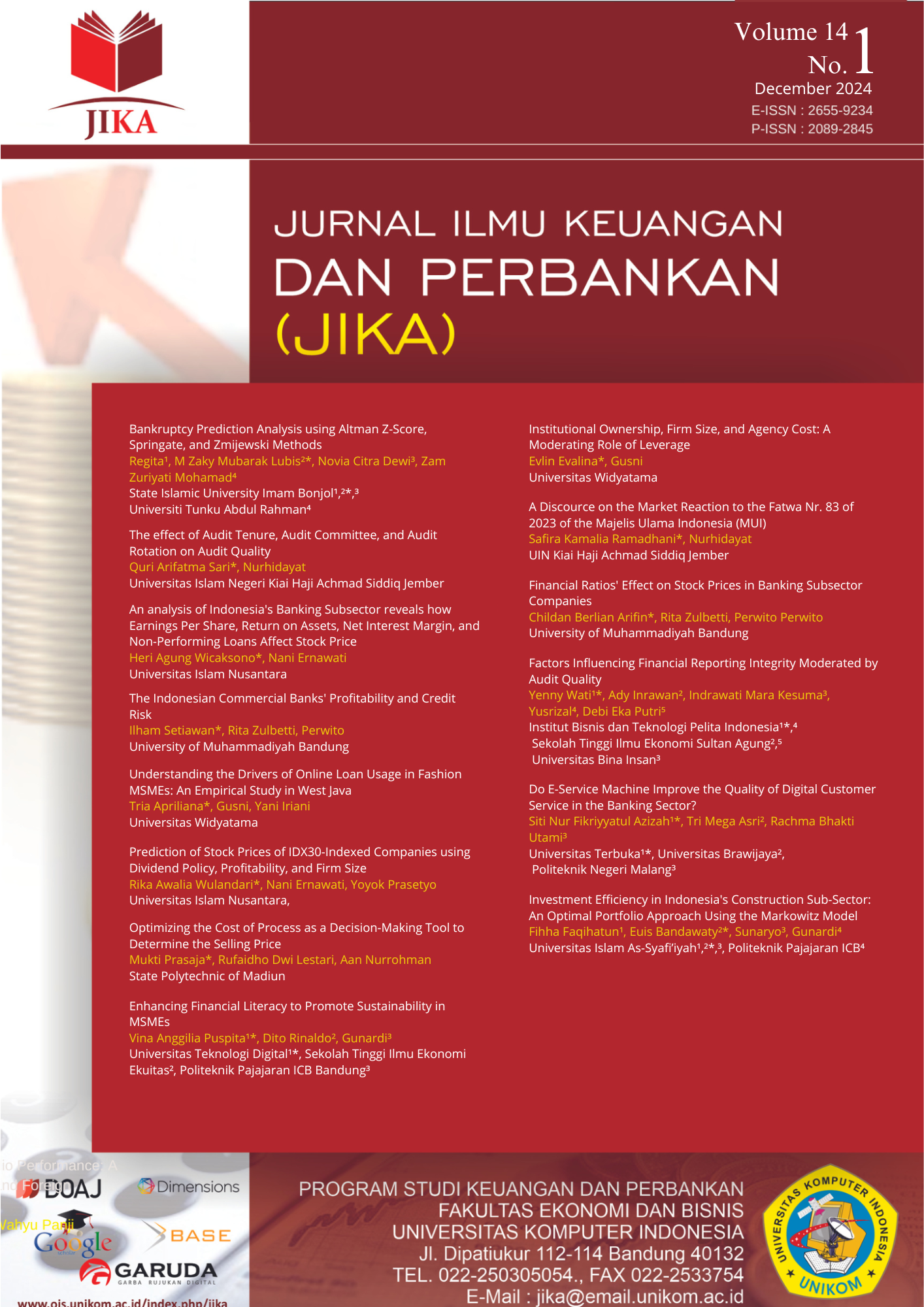Investment Efficiency in Indonesia's Construction Sub-Sector: An Optimal Portfolio Approach Using the Markowitz Model
DOI:
https://doi.org/10.34010/jika.v14i1.15149Abstract
Investment is an activity aimed at generating future profits but is inherently accompanied by uncertainty risks. To minimize such risks, investors need to construct an optimal portfolio. This study uses the Markowitz Model approach to analyze the allocation of returns and risks in forming an optimal portfolio of construction sub-sector stocks listed on the Indonesia Stock Exchange (IDX) from January to December 2021 as well as identifies the stocks selected as part of the optimal portfolio. The research employs a descriptive quantitative approach, with a population of 29 stocks and a sample of 18 stocks meeting the selection criteria. The results reveal that applying the Markowitz Model results in an optimal portfolio with a risk level of 0.47% and an expected return of 4.12%. The four stocks selected for the optimal portfolio include DGIK (44.4%), IDPR (2.2%), PPRE (30.9%), and RONY (18%). This study contributes new insights by highlighting investment efficiency in the construction sub-sector in Indonesia, which plays a vital role in national development. Moreover, it compares various portfolio scenarios to identify the best efficiency point, a method rarely applied in the context of the construction sector within the Indonesian market. This research is expected to serve as a reference for investors and scholars in understanding the formation of optimal portfolios and to encourage further.
Keywords: Investment Efficiency; Optimal Portfolio; Markowitz Model; Return and Risk; Construction Sub-Sector














